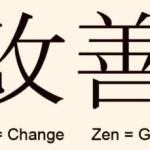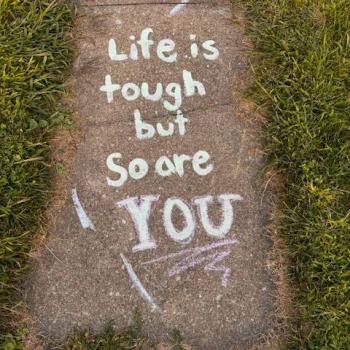John Wesley said there are two types of holiness. Personal holiness, where you grow your personal relationship with God, and social holiness, which is loving and supporting your neighbors. To be a complete Christian, we need to focus on both. He wrote: “The Gospel of Christ knows of no religion, but social; no holiness but social holiness. Faith working by love is the length and breadth and depth of Christian perfection.”
I want to end the year with a series of discussions looking at how we can begin to have healthy, theological and biblically critical informed conversations around how we talk about matters of faith in a polarized and divided world. In this week’s post, I will discuss what civil discourse is, look at its Jewish roots and spend a bit time looking at the history of the Wesleyan movement and how it shaped 18th century England, America and eventually the world. Wesley, turned away from an Anglican pulpit declared that all the world was his pulpit. Jesus did not die for the church; he died for the world. We build a better world when learn to talk to each other. I see this in my counseling office, when I get couples to actually learn how to talk to each other, their relationships get better. We need to learn to listen better.
Jewish Dialogue
One of the concepts I enjoyed learning about when doing the research and writing for my World Religions Class that I teach was how Jewish people dialogue with each other. From an outsider’s perspective, what I read looked a lot like how my Italian Grandfather and Uncles would speak to each other when I was a kid, but with Jewish people, there is a grace, a gratitude and a listening that is unlike anything I have observed outside of my counseling office.
Johnathan Sacks, who was a Jewish Rabbi offers “When individual Jews or groups of Jews have disagreements, as inevitably happens, we have to find ways to overcome them respectfully, to ensure we continue to thrive as a people.”
He offers these points on how to have a civil dialogue:
Principle 1: Keep talking, even when you disagree. The more you talk, the more you are likely to eventually find a way to work together.
Principle 2: Listen deeply to one another. Hear what your opponent is saying. Listening is profoundly therapeutic. It is also deeply spiritual.
Principle 3: Always be humble and modest by striving to understand the point of view with which you disagree. That was the way of Hillel. It remains the first rule of conflict management.
Principle 4: Never seek victory. Never ever seek to inflict defeat on your opponents. If you seek to inflict defeat on your opponent, your opponent – such is human psychology – will seek to retaliate by inflicting defeat on you. The end result will be that even if you win today, you will lose tomorrow, and, in the end, everyone will lose. Don’t think in terms of victory and defeat. Think in terms of what is best for the Jewish (others) people.
Principle 5: If you show contempt for other Jews (others), they will show contempt for you. If you show respect for other Jews (others), they will show respect for you. If you seek respect, give respect.
There is a lot of wisdom here. I teach people to listen with their eyes and heart as much as with their ears. I feel Jesus captured Rabbi Sacks points when he would disagree in his “you have heard it said” teachings. Here, we see Jesus masterfully reflect thoughtfully on his scriptures and re interpret them for his audience. He also eloquently used the parable device to strengthen his teachings. Even when he did condemn, it is done gently.
Civil Discourse
I bill myself as a therapist and pastor who makes space for dangerous questions. Had the term civil discourse been around at the beginning of my career, I would have found a way to work this term into my explanation of what I do. Civil discourse is the practice of deliberating about matters of public concern in a way that seeks to expand knowledge and promote understanding. The word “civil” relates directly to civic in the sense of being oriented toward public life, and less directly to civility, in the sense of mere politeness.
Both of my Master’s programs were rigorous, but my second was particularly rigorous in that I had to often reflect on society’s “other” in the counseling relationship. I had to look at how to counsel from a white perspective with someone who was black, in the LGBTQ+ community and with women among others. In my first Master’s program, I studied primarily the theologies of Black men, Latino, Womanist, Feminist and what is now known as Queer theological perspectives, all of which did not set me up for ministry success in my primarily white and now solidly red state of Pennsylvania.
Civil Discourse requires serious study and practice of the spiritual practice of grace.
Acts 2 Church and John Wesley
One of the classes I remember in Seminary was my Methodist history course. We learned it through the eyes of women who went out and spread the Methodist mission beyond the colonies and into the frontier. Often given a gun, a bible and a license to preach, these women would help establish the church westward. Along the way, the frontier was tamed and education of the masses spread through the Sunday school model.
The Acts 2 is a model for small, intimate gatherings to look at the teachings of Jesus and widen the mission of the early church. Wesley would pick this up later with his holy meetings. Tie this with the Methodist focus on education early on and we can begin to see our role in combating ignorance. Ignorance won in the 2024 election. Ignorance and fear put Jesus on the cross and ignorance and fear is the driver that allows insignificant people to become powerful tyrants.
Wesley wanted us to “become Christ in heart and in actions.” Jesus took time to speak with everyone. With grace. With love. With understanding. The next couple of weeks, I want to explore how we can begin to do this on issues that we may not see eye to eye on.













